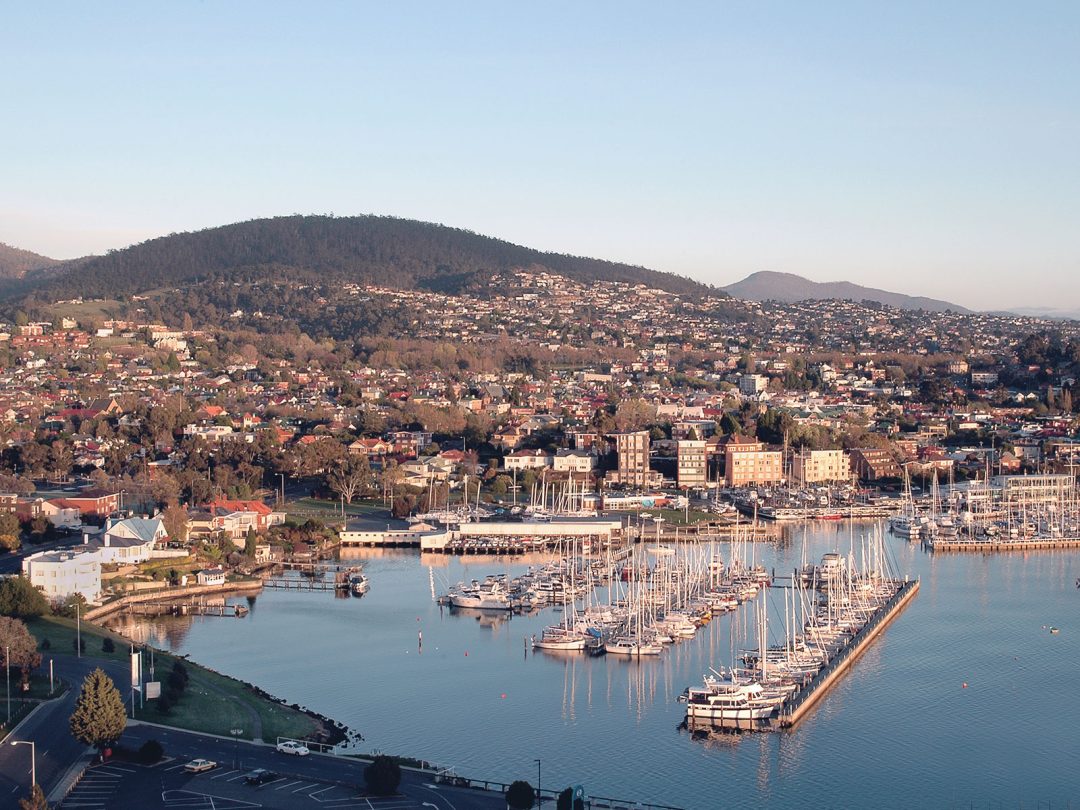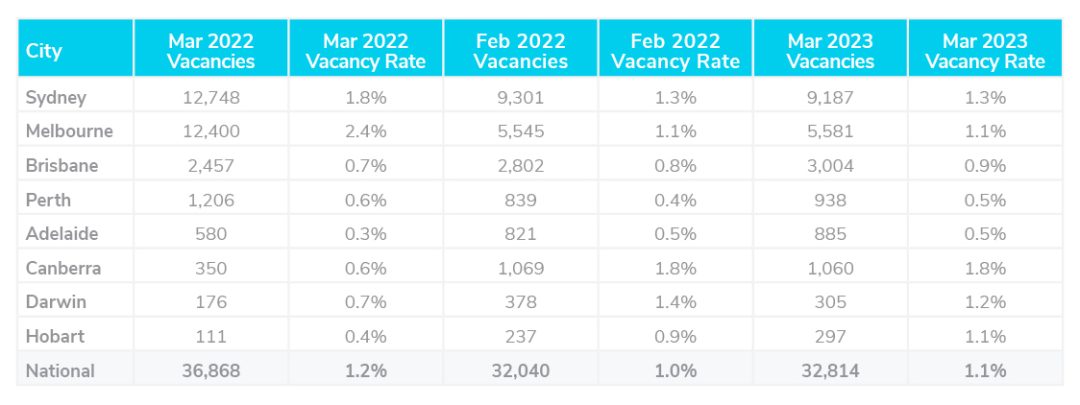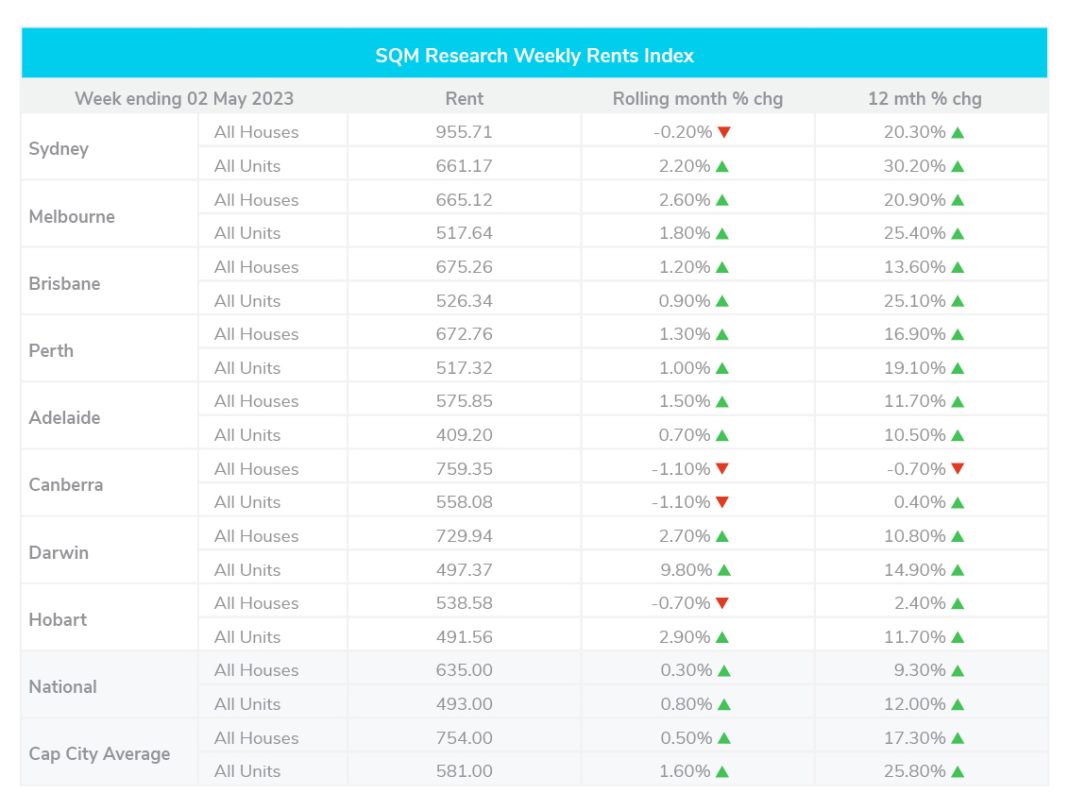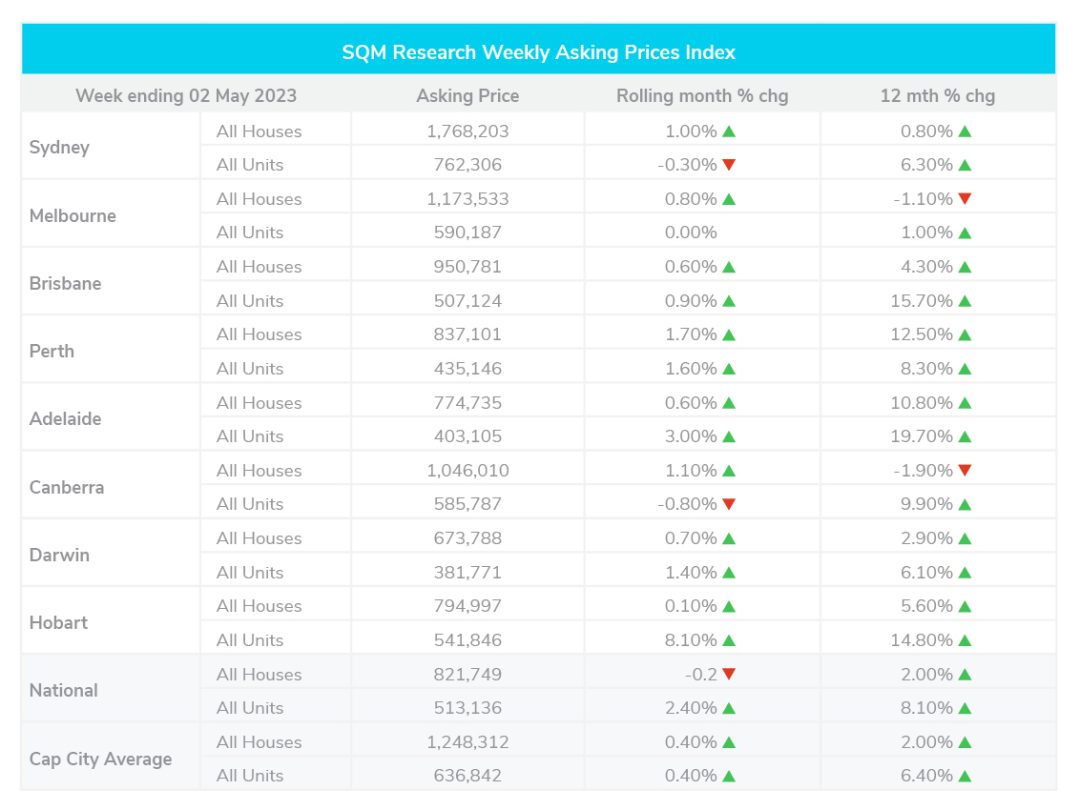April 19th, 2023
April Release: Auto-reply per team member, Trade Me integration, and MePay deposits
PropertyMe
Industry News

The national residential vacancy rate rose slightly to 1.1% in March from 1.0% recorded in February. Across the capital cities, there has been an increase in vacancies in Brisbane, Perth, and Hobart, while Sydney and Melbourne remained steady. Asking rents have risen across most regional and capital cities, with a decrease seen only in Sydney, Canberra, and Hobart. Over the past 30 days to 2 May 2023, vendor asking prices rose by a combined 0.2% nationally, for the second consecutive monthly rise
SQM research reported that the national residential vacancy rate rose slightly to 1.1% in March from 1.0% recorded in February. The total number of vacancies across Australia for March 2023 is 32,814.
Regional vacancy rates continue to indicate a trend of population flow back toward the cities, with sharp rises in vacancy rates. The Blue Mountains vacancy rate rose to 2.0%, the highest level recorded since April 2020, and Gold Coast Main rental vacancy rate rose to 1.1%, the highest level recorded since October 2021.
Across the capital cities, there has been an increase in vacancies in Brisbane, Perth, and Hobart, while Sydney and Melbourne remained steady at 1.3% and 1.1% respectively.
Louis Christopher, Managing Director of SQM Research said “The rental crisis in Australia’s regions has peaked with an easing in rental vacancy rates and rents across many smaller townships and coastal locations. This peak also extends to some of our smaller capital cities such as Hobart, where rental vacancy rates rose back over 1% and rents are now down by 1.8% for the past 30 days.”
“However, the same cannot be said for our two largest capital cities where the rental crisis rolls on, driven by rampant population growth, a slowdown in the respective construction pipeline, and a return to the city office move from the regions.”

Asking rents have risen across most regional and capital cities for the 30 days prior to 28 April with the national asking rent for houses rising 0.3% for houses and 0.8% for units and capital city average rising 0.5% for houses and 1.6% for units.
Over the past 12 months, the national asking rent has risen by 9.3% for houses and 12% for units, and the capital city average has risen by 17.3% for houses and 25.8% for units.
Decreases in asking rents were seen only in Sydney, Canberra, and Hobart at -0.2%, -1.1%, and -0.7% respectively for houses.
The national median weekly asking rent for a house is $635 and a unit is $493. The capital city median weekly asking rent for a house is $754 and a unit is $581.

Over the past 30 days to 2 May 2023, vendor asking prices rose by a combined 0.2% nationally, for the second consecutive monthly rise. Asking prices for houses decreased by -0.2% and increased for units by 2.4%. The strongest increase in asking price wising was seen in Perth at 1.7% for houses and 1.6% for units. The capital city average asking prices have increased by 0.4% for both houses and units.
Over the past 12 months, the national asking prices have risen by 2% for houses and 8.1% for units for a combined increase of 2.7%, and the capital city average has risen by 2% for houses and 6.4% for units for a combined increase of 2.5%
Louis Christopher, Managing Director of SQM Research said “April is typically a month that does record falls in listings activity, primarily due to the multiple public and school holiday periods. That said, the falls appear to be greater than normal for this time of year. The corresponding large falls in new listings combined with an uncharacteristic fall in older listings suggests some vendor caution selling at this point in time. And those vendors who
are on the market want more for their property as asking prices rose again for the month, though we note weakness in the regions.”
“Going forward it is likely we will see a bounce in new activity for May. Thy key will be if we record another fall in older stock as that will confirm to us buyer activity has risen.”

April saw the RBA hold the cash rate target at 3.60% for the first time after consecutive increases across the previous 10 months.
Disclaimer: the information enclosed has been sourced from SQM Research and Reserve Bank of Australia, and is provided for general information only. It should not be taken as constituting professional advice.
PropertyMe is not a financial adviser. You should consider seeking independent legal, financial, taxation, or other advice to check how the information relates to your unique circumstances.
We link to external sites for your convenience. We are selective about which external sites we link to, but we do not endorse external sites. When following links to other websites, we encourage you to examine the copyright, privacy, and disclaimer notices on those websites.